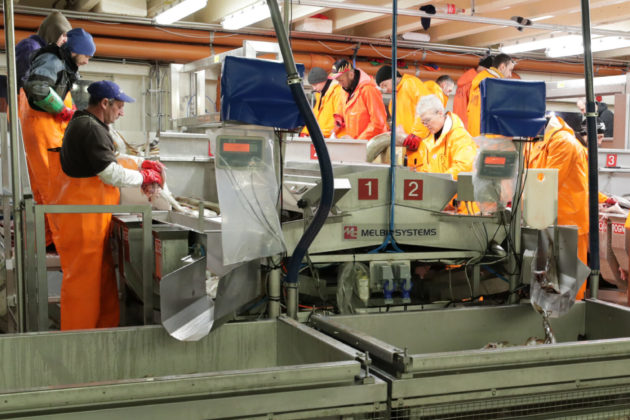SocSus
Documentation of social sustainability in the Norwegian seafood industry

The project provided documentation of the social sustainability in the Norwegian seafood industry.
Start
01. Dec 2017
End
20. May 2019
Funded by
The Norwegian Seafood Research Fund - FHF
Reports about abuse, slavery and child labour in the international seafood industry has led to more attention and awareness of the problem, and there is now an increasing demand for the Norwegian seafood industry to document their social sustainability. In 2018 the Norwegian fleet consisted of more than 6000 vessels and over 11000 fishermen, and the onshore processing industry employed more than 9000 people. The project describes Norwegian laws and legislation, control regime, trade union involvement and opportunities for sanctioning violations of human rights, safety and working conditions and social security. The project is anchored in the seafood industry and the markets through workshops, participation in international and national seminars, and by interviews among key representatives in the industry and markets.
In the international seafood industry, supply chains onshore and at sea are often complex, with multiple layers of activity. The vulnerability of both land and sea-based workers to exploitative labour practices highlights the need for transparency. Traceability and transparency have been embraced by NGOs, research partnerships and the wider international market as a possible solution to issues like IUU fishing and social issues like forced labour in global fisheries.
The Norwegian seafood industry serves approximately 145 markets worldwide and is the second largest seafood exporter in the world. This report reflects the endeavours of the Norwegian wild fish industries to provide an objective, transparent and honest document on the social sustainability in the Norwegian fleet and processing industry. As advised by the UN, this work describes Norwegian rules and legislation, controlling authority routines (implementation and control), cooperation and systems for violation prevention and in worst-case scenarios, routines for sanctions. In addition, strong trade unions guard government and companies, and provide important additional security for the workforce. A risk analysis reveals where violations to Norwegian standards might and do occur, how severe these violations are, how they are controlled and handled. As workers’ rights and safety are an important part of the Norwegian labour market model the report extends from basic human rights like slavery, trafficking and child labour to include decent working conditions, social security, equality and safety.
Report
Similar projects